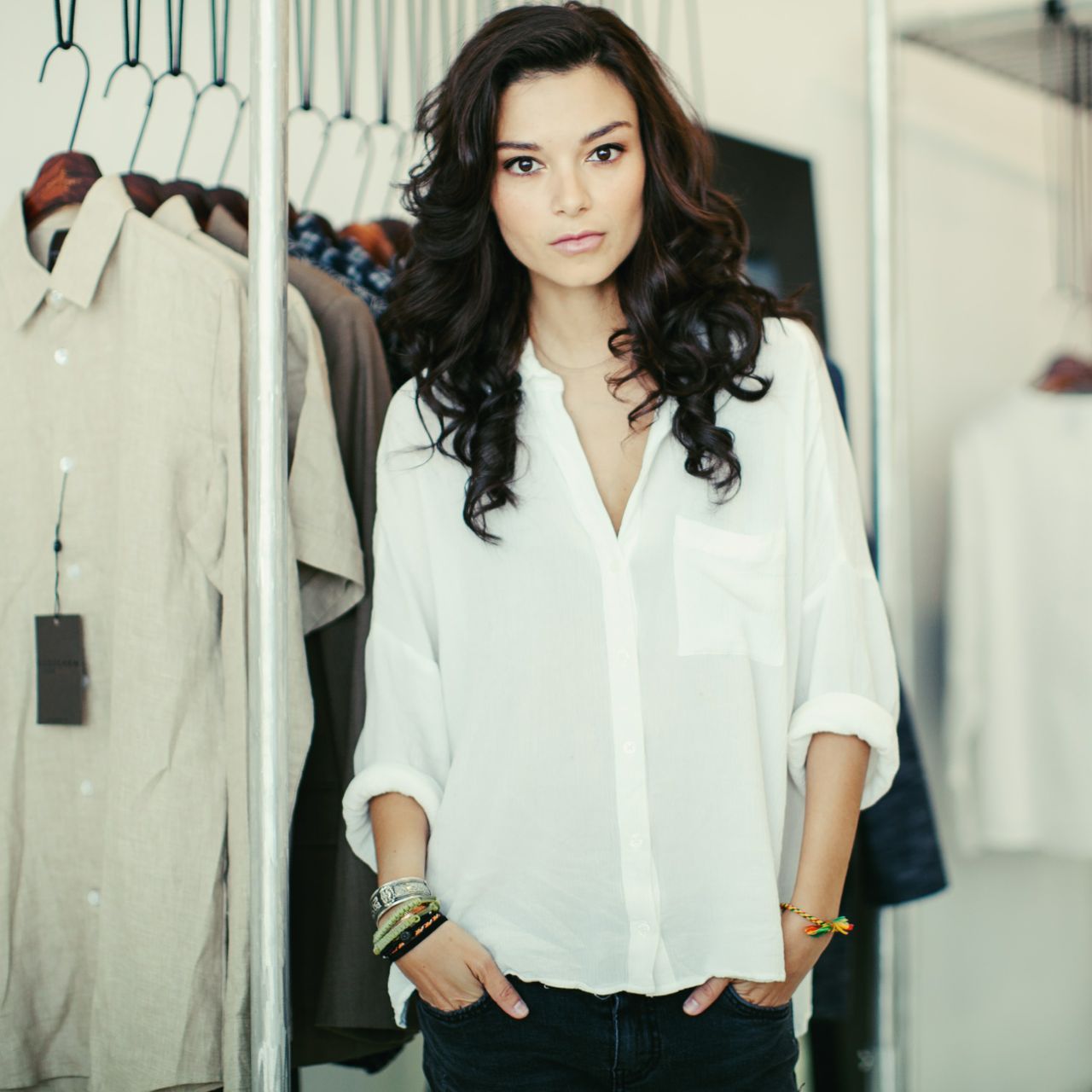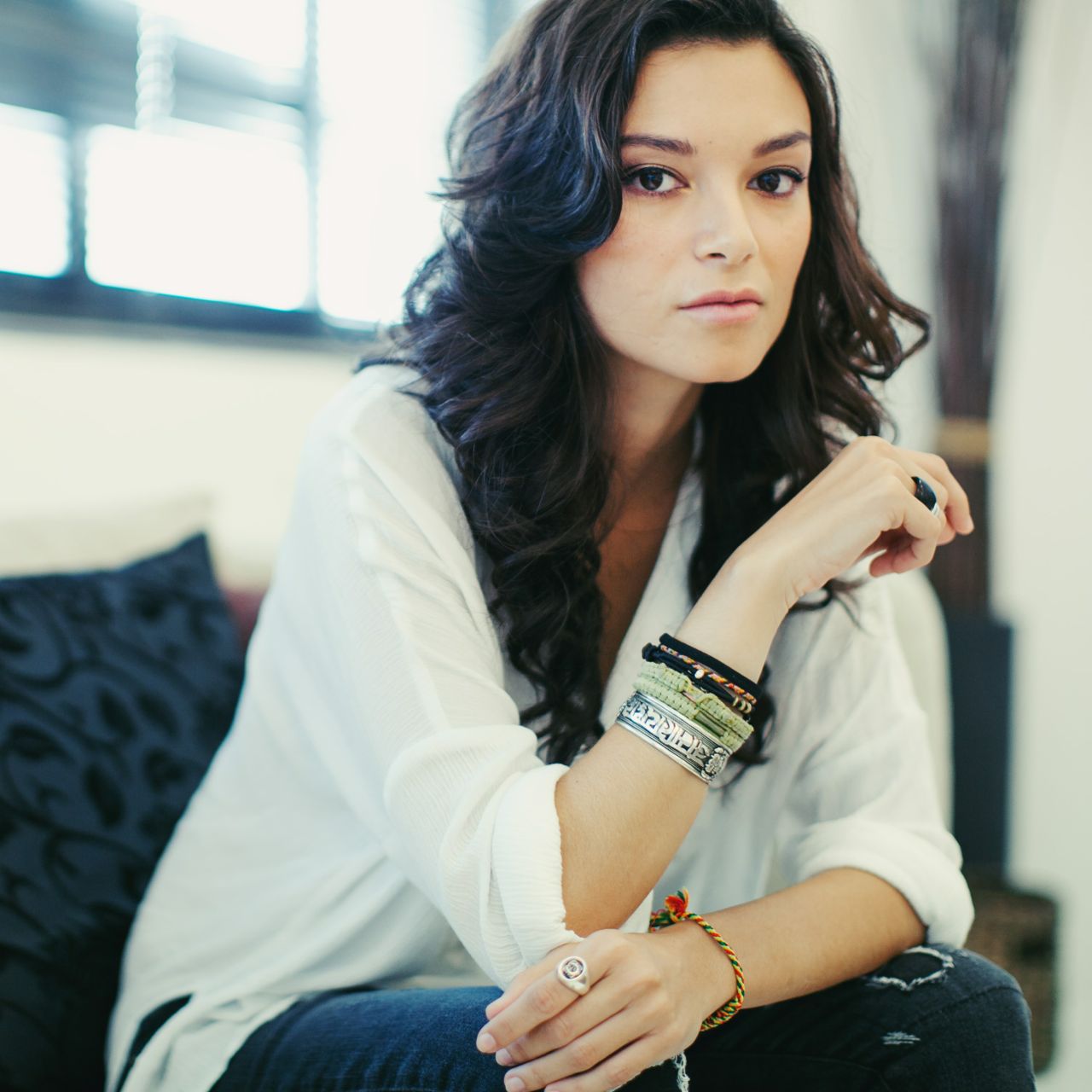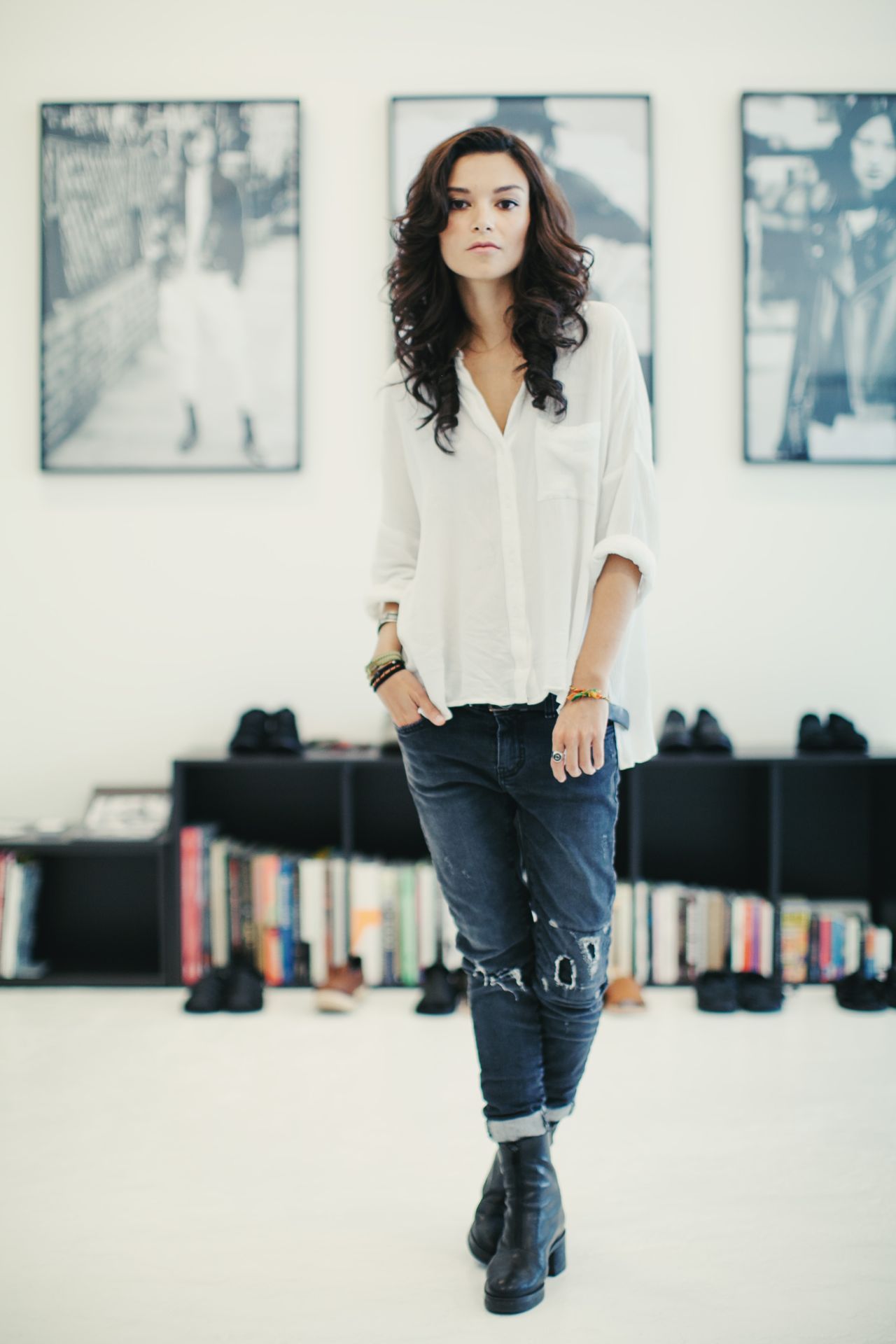Text by Kien M. Lee | Photos by Amanda Wong
Born and raised in Singapore, and of British descent, Chelsea Scott-Blackhall is the personification of the contrast in cultures, and she's extended this juxtaposition of "practical and philosophical influences, of East and West," of “paradox and duality, unexpected balance from contradiction” into her own clothing label, DZOJCHEN.
Pronounced "doh-jen", DZOJCHEN means "wholeness" in Sanskrit and aptly so since the brand encapsulates the coming together of opposing ideas as seen in the silhouettes of its mens- and womenswear.
Launched in 2011, DZOJCHEN has made huge strides, having showcased in fashion weeks in Singapore, Seoul, and Paris and featured in notable publications including Harper's Bazaar, Elle, Vogue, Style, to the International Herald Tribune and celebrities like Johnny Depp, Mickey Rourke, Carmen Kass, Lenny and Zoe Kravitz already donning her designs.
With its collections currently being sold in Sydney, Zurich, London, Paris, Dubai, Istanbul, New York, Los Angeles and Miami, the label continues to proudly call Singapore its home, throwing down the gauntlet in the city-state that so often imports its tastes in fashion, as one of the few outstanding homegrown fashion brands that do the exporting instead.
With her brand involved in the KEEPERS: Singapore Design Collective currently taking place on Orchard Road, we speak to Chelsea to find out how she is defining and seeking her next level of success.
Let's kick this off by talking about this “Keepers” project that you're participating in now. What is it?
KEEPERS is a design collective. It's a joint effort between the Textile & Fashion Federation, Spring Singapore and the Singapore Tourism Board to hone in on Singapore design and craftsmanship. Tapping onto the true homegrown artisans of fashion and lifestyle. It's an initiative to upscale the value of Singapore brands within Singapore itself.
There's always that misconception that because you're Singapore, you may not have an upper echelon brand. [KEEPERS] is trying to abolish that [misconception].
Will you be showcasing your upcoming collection there?
Yes! We are selling select pieces from two seasons Spring/Summer 2014 and Fall/Winter 2014-15. Through the course of the 5-month Pop-up, we will also be bringing in pieces from our latest collection as well as Keepers exclusive designs.
And where are you retailing now?
We were retailing at Coda in Scotts Square, which closed a few months ago, and now we retail at ‘KEEPERS' on Orchard Green. In the coming months, we will be announcing the new retailers for DZOJCHEN in Singapore.
And I understand you'll also be opening up your own flagship store? That must be a huge leap.
When you're only stocked in a department stores or multi-label stores, you don't really get to showcase your brand's personality. You don't get to fully the branding elements that make your collection stand out. So we thought, "Okay, home is Singapore, maybe we should go all out and open a flagship store here."
I've done a lot of pop-up stores in New York, LA... but this would be the first actual brick-and-mortar flagship.
What's next in those plans?
The balance of location, cost and timing.

And so we're here in your new showroom today, and you've just talked about your plans to establish your own independent store as well. Is this a function of you recognising Singapore as a focal point to grow your business, and hence doubling-down? Or…?
It's not so much doubling-down. Singapore's still a risk market for me, to be honest, because our success has always come [from] overseas. But at the end of the day, we're a Singapore brand, and I'm Singaporean. My roots are here...
In terms of having a retail outlet, it's not because I think this is a market that we will explode in, so much as I think it's an integral part for a brand to have a presence base in its home country.
It's always been something I wanted to do from the beginning. For the last 3 years since we launched the brand, we were under an exclusive arrangement with Coda at Scotts Square, so I wasn't able to do my own store.
So do you think having that exclusivity worked for you? Did it hold you back or... ?
I think exclusivity's really good because it becomes a partnership.
When you just retail with any store, multi-label or department store, they tend to base it on numbers, i.e. "How much are we getting your product for and how much we are going to sell it for."
Whereas when you have a partnership based on exclusivity, there is this joint effort to build the brand i.e. because "we are under a contract to make you a success story, in order to make us a success story".
I think it's great because you multiply your marketing efforts; you multiply the feedback you receive. Without having your own retail store or an exclusive retail partner, you will always be selling only to arms length buyers. When you have exclusivity partnerships, they go out of their way to tell you how to improve your product — what's retailing well, what isn't, vs. other stores that just buy wholesale, they'll either buy you or they won't. They won't take the time to help "grow" you.
And DZOJCHEN, how did the choice of name for your brand come about?
I didn't want to have a name [for my brand] that was a given, so easily known... A Blue Harbor or True Religion. A brand name should come to mean what the brand owner makes it mean. So I liked that the word was intriguing and unusual and could reflect what I wanted the brand to be. And if it sticks with those that take the time, it really will stick.
The brand [name] is based on duality, as I always like to indulge into the elements of paradox. We always try to create designs that embrace dualities, be it hard and soft, or strong yet sensitive, striking yet subtle.
So is this duality approach, is it just in styling or is it in materials you use as well?
In everything. DZOJCHEN dualities translate into that unique "wholeness" of every individual. So it's paradoxical in that maybe you're a very confident person but it doesn't mean you're not sensitive. If I wear couture, it doesn't mean I can't wear it with a $2 Chinatown t-shirt.
DZOJCHEN aims to engage those paradoxical dualities, both in fabric and form. We implement that in the way we shoot our lookbooks, and in our fabrications: we do leather but we also do silk.

What would you say the typical or ideal DZOJCHEN customer would be? What kind of person do you envision this person to be?
The beauty is there isn't a type. You could be an accountant who rides a Harley Davidson on the weekends. Or you can be an advertising executive whose passion is to collect stamps. [The brand] captures people who really hold their own, who don't fall into stereotypes. Individuals with the confidence to wear their personality; in essence expressing their own indiviDUALITY.
I've seen a lot of previous coverage mentioning you as a menswear designer but you do both men's- and womenswear?
I think it's because our womenswear seems masculine. I'm not a "dress designer". As a character, I've never been one to design very effeminately. So we get a lot of coverage on our mens but when we do get coverage on our womens, it tends to be on the more edgy designs, and the slightly more cult-based buyer.
What would you say are some of the lessons you've learnt over the last 3 years?
We really pounded the pavement with tradeshows, fashion shows, just exploring every market. You learn price points, you learn what works, you learn more about fabrication, you learn to balance marketing and consumerism. In retrospect, three years ago, I was a baby.
There's so much you keep learning through all these experiences. Every market is so different from the other. What I learn in New York may or may not apply to Singapore.
So is travelling a big part of what you do now?
I'm literally not in the same place for more than 1 month. I would say part of me loves that but of course, one misses consistency. Last week I was in LA and Vegas. The week before that I was in Miami and New York. 2 weeks before that I was in Korea and Japan.
When we are in our sales and marketing weeks, we usually are in the West, so New York, Paris, Milan. Out of season, when we are producing our collections, it's very Asia-based, so it's Japan, Korea, Singapore, Vietnam, Pakistan, Hong Kong.

Where do you see yourself having the most success, where you have growth potential?
The U.S. — that's our strongest market and that's probably where we've spent the most time. I want to tap into Europe more; we do retail there but only a year ago did I start doing European shows, like Tranoi in Paris and Pitti Uomo in Milan.
And Asia. We [already] sell in Japan, and in Korea. We want to grow in Singapore, Hong Kong, China, Indonesia.
What's the challenge in trying to sell more in South East Asia? Is it the consumer and how they dress?
It's the mind and body. The consumer in totality.
Asian consumers are much harder. A, because of climate. We do 2 seasons. We have Fall/Winter collections and we have Spring/Summer but they tend to only want to buy Spring/Summer collections. That's taking out a whole 6 months worth of presence. The average Singaporean isn't going to wear a leather or wool jacket — that's the practical side of it.
B, because of the mindset — if you're an Asian brand, what is your worth? Where is your heritage? Where are you produced? The customer poses these questions to you because you don't have that heritage, that "Made in Italy", "Founded in 1920"... kind of association. You can't change the consumer's pre-conceived notion about your Asian origin, so it's become more marketing-based. Everything is no longer simply about the product; it's how we can market the product. [Sometimes] we showcase overseas to validate our presence back here in Asia.

So you mentioned you're Singaporean, but you started your brand in New York?
I was living in New York at the time [when I started the brand] but I grew up in Singapore, till I was 18. My father's English, my mother's Singaporean. I spent a lot of time in America because that's where work fell into place for me. I come back home frequently, as my family's here and they are a huge part of my life, and also have our main production office here.
So why Singapore now? Why the focus on growing here?
The more I go on, the more I realise that if you neglect one part of your brand — the origin, then you lose identity.
Singapore is a big part of my life, and a big part of the brand. So is America and other territories that come to be part of the DZOJCHEN path. So ultimately, my brand is a grouping of all these elements that came together. It's another duality.













